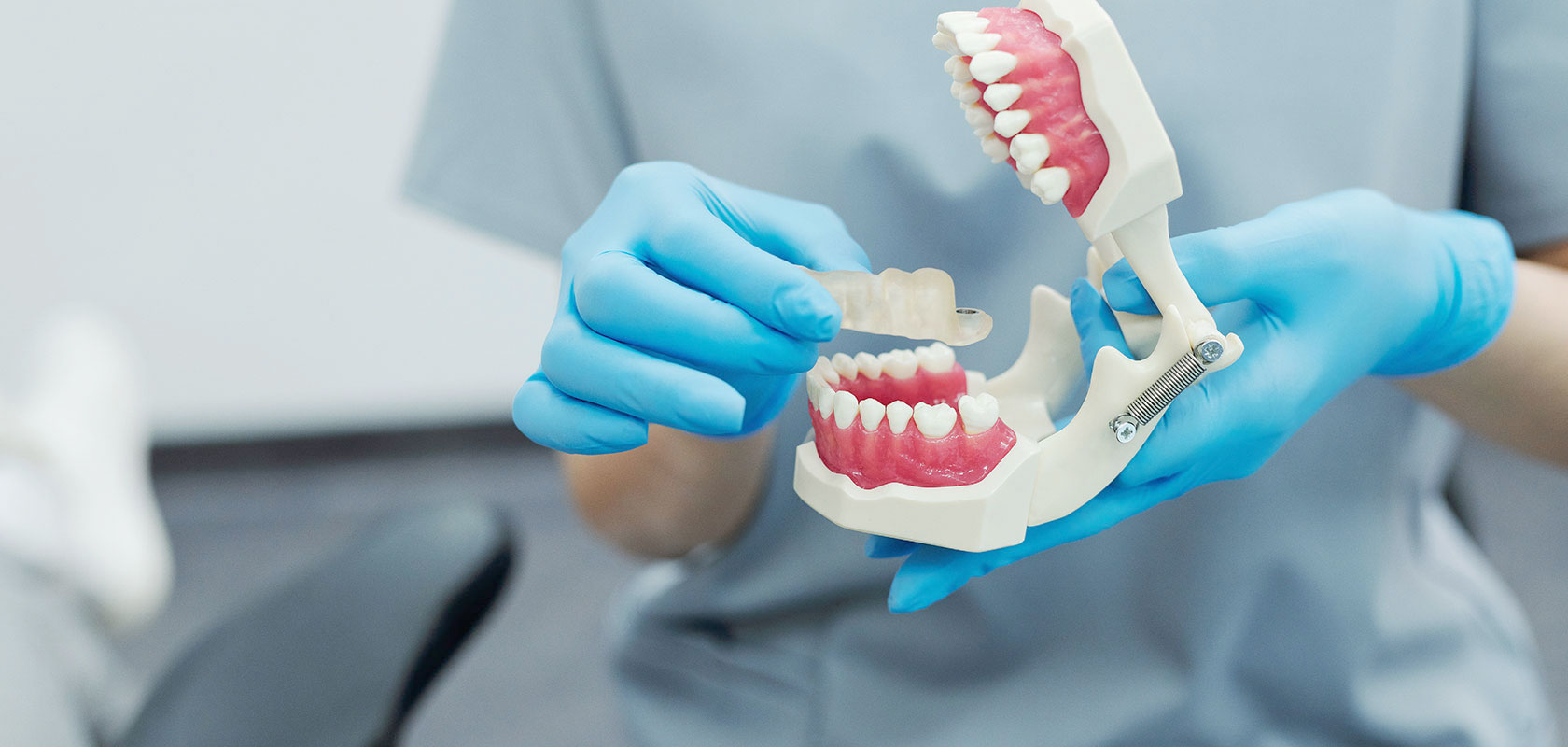Temporomandibular Joint (TMJ) dysfunction, often referred to as TMJ disorder or TMD, affects millions of people worldwide, causing discomfort in the jaw, face, and even head. The temporomandibular joints are responsible for connecting the lower jaw (mandible) to the skull, enabling necessary movements like chewing, speaking, and yawning. When these joints are not functioning properly, it can lead to pain, stiffness, and difficulty moving the jaw, significantly affecting daily life. Fortunately, TMJ dysfunction can be managed with a variety of treatment options designed to reduce symptoms and improve quality of life.
This article explores the various treatment approaches available for tmj dysfunction treatment, from conservative home remedies to advanced medical interventions. We will also discuss the causes, symptoms, and diagnostic methods, as well as how early diagnosis and effective management can alleviate the pain and discomfort associated with TMJ dysfunction.
What is TMJ Dysfunction?
TMJ dysfunction refers to a group of conditions that affect the temporomandibular joint, resulting in pain, discomfort, or limited movement. The temporomandibular joint (TMJ) is a complex structure composed of bones, muscles, tendons, and ligaments. It acts as a hinge, allowing the jaw to move up and down, side to side, and back and forth. These movements are essential for chewing, speaking, and facial expressions.
When the TMJ is not functioning properly, it can cause a variety of symptoms, including:
- Jaw pain or tenderness, particularly around the ear area.
- Headaches or migraines.
- Popping, clicking, or grinding sounds when moving the jaw.
- Limited range of motion, making it difficult to open or close the mouth fully.
- Facial pain, which may radiate to the neck, shoulders, and upper back.
- Earaches or a feeling of fullness in the ears.
- Teeth grinding or jaw clenching, especially during sleep.
The cause of TMJ dysfunction can be multifactorial, and identifying the underlying issue is crucial for selecting the right treatment. Common causes include injury or trauma, teeth misalignment, arthritis, jaw clenching, stress, and genetics.
Causes of TMJ Dysfunction
TMJ dysfunction can develop for several reasons, and it often results from a combination of factors. Some of the common causes of TMJ dysfunction include:
- Injury or Trauma: An accident or injury to the jaw, head, or neck area can lead to TMJ dysfunction. This may involve a direct blow to the jaw, whiplash, or other trauma that affects the alignment of the joint.
- Teeth Grinding (Bruxism): Grinding or clenching the teeth, especially during sleep, places excessive pressure on the TMJ and surrounding muscles, leading to inflammation and pain.
- Misalignment of the Teeth or Bite: Malocclusion, or misalignment of the teeth, can result in uneven pressure on the TMJ, causing strain and discomfort.
- Arthritis: Conditions like osteoarthritis and rheumatoid arthritis can affect the temporomandibular joint, causing inflammation and degeneration of the cartilage and surrounding tissues.
- Stress and Anxiety: Emotional stress can contribute to tension in the jaw muscles, leading to clenching and grinding, which can exacerbate TMJ dysfunction.
- Poor Posture: Poor posture, particularly when sitting for long periods, can lead to misalignment of the jaw and neck, contributing to TMJ pain.
- Genetics: Some people are genetically predisposed to developing TMJ dysfunction due to inherited factors, such as abnormal jaw alignment or a predisposition to arthritis.
Symptoms of TMJ Dysfunction
TMJ dysfunction manifests in a wide range of symptoms, and its severity can vary from mild discomfort to debilitating pain. The following symptoms are commonly associated with TMJ dysfunction:
- Pain in the jaw, face, neck, or shoulders, which may worsen with chewing or speaking.
- Clicking, popping, or grating sounds when moving the jaw.
- Limited jaw movement, making it difficult to open or close the mouth.
- Frequent headaches, particularly tension-type headaches or migraines.
- Earaches or a feeling of fullness in the ears.
- Teeth grinding or jaw clenching, often during sleep.
- Difficulty chewing or speaking, accompanied by pain or discomfort.
If you experience any of these symptoms, it is essential to seek professional evaluation and treatment to address the underlying causes of TMJ dysfunction and prevent further complications.
Diagnosing TMJ Dysfunction
Diagnosing TMJ dysfunction involves a combination of medical history, physical examination, and diagnostic tests. The process typically includes:
- Medical History and Symptom Review: A healthcare provider will ask detailed questions about the patient’s symptoms, including the duration and intensity of pain, any jaw-related injuries, and whether teeth grinding or jaw clenching is occurring. The provider will also inquire about any other contributing factors, such as stress or underlying health conditions.
- Physical Examination: The healthcare provider will perform a physical exam, palpating the jaw and temporomandibular joint to assess for tenderness, swelling, or misalignment. The provider may also check the jaw’s range of motion to evaluate any restrictions or discomfort.
- Imaging Tests: X-rays, MRI scans, or CT scans may be used to assess the structures of the TMJ and surrounding tissues. These imaging tests can help identify any abnormalities, such as joint damage, inflammation, or arthritis.
- Bite and Alignment Evaluation: A dentist may evaluate the patient’s bite and tooth alignment to determine if malocclusion is contributing to the TMJ dysfunction.
Once a diagnosis is made, a customized treatment plan will be developed based on the severity and underlying causes of the condition.
Treatment Options for TMJ Dysfunction
TMJ dysfunction is treatable, and there are a variety of treatment options available to help reduce pain, improve jaw function, and address the underlying causes of the disorder. The appropriate treatment approach depends on the severity of the condition and its root causes. Below are some of the most common treatment options for TMJ dysfunction:
Conservative and Self-Care Treatments
For many individuals with mild TMJ dysfunction, conservative treatments and lifestyle changes can be effective in reducing pain and improving function:
- Hot or Cold Compresses: Applying a warm compress to the jaw or a cold pack to reduce inflammation can help alleviate pain and discomfort.
- Over-the-Counter Pain Relievers: Nonsteroidal anti-inflammatory drugs (NSAIDs), such as ibuprofen or aspirin, can help reduce pain and swelling associated with TMJ dysfunction.
- Jaw Exercises: Gentle jaw exercises, as recommended by a physical therapist or healthcare provider, can help improve jaw mobility, reduce muscle tension, and alleviate pain.
- Stress Management: Learning stress-reduction techniques, such as meditation, deep breathing, and relaxation exercises, can help alleviate jaw clenching and muscle tension caused by stress.
- Avoiding Jaw Strain: Avoiding behaviors that strain the jaw, such as chewing gum or eating hard foods, can prevent further irritation and pain.
Dental Treatments
If TMJ dysfunction is caused by misalignment of the teeth or bite, dental treatments may be necessary:
- Custom-Made Mouthguards or Splints: A dentist may recommend a custom-fitted mouthguard or splint to wear at night. This helps reduce teeth grinding and jaw clenching, which can alleviate pressure on the temporomandibular joint.
- Orthodontics: For individuals with significant bite problems, braces or clear aligners may be used to correct malocclusion and realign the teeth.
- Occlusal Adjustments: A dentist may perform an occlusal adjustment to reshape the teeth and improve how the upper and lower teeth meet. This can reduce pressure on the TMJ.
Physical Therapy
Physical therapy can be beneficial in managing TMJ dysfunction by strengthening and stretching the muscles around the jaw:
- Jaw Exercises: Physical therapists may guide patients through specific jaw exercises that help improve mobility, strengthen the muscles around the jaw, and reduce pain.
- Massage Therapy: Massaging the jaw and neck muscles can help relieve muscle tension and improve blood flow, reducing discomfort.
- Posture Correction: A physical therapist may also address posture issues, as poor posture can contribute to TMJ pain.
Advanced Medical Treatments
For more severe cases of TMJ dysfunction, advanced medical treatments may be necessary:
- Botox Injections: Botox injections can help relax the jaw muscles, reducing tension and discomfort caused by teeth grinding or jaw clenching.
- Arthrocentesis: This minimally invasive procedure involves flushing out the joint with sterile fluid to remove debris and reduce inflammation.
- Surgery: In rare cases, surgery may be needed to repair or replace the temporomandibular joint if conservative treatments are unsuccessful. Surgical options include arthroscopy, joint replacement, or jaw realignment procedures.
Alternative Therapies
Some individuals with TMJ dysfunction may seek alternative therapies, including acupuncture, chiropractic care, or osteopathic manipulation, to relieve pain and promote healing.
Conclusion
TMJ dysfunction is a common condition that can cause significant discomfort and interfere with daily life. However, with early diagnosis and appropriate treatment, the symptoms of TMJ dysfunction can be effectively managed. Treatment options vary depending on the severity and underlying causes of the condition, and they range from conservative self-care strategies to advanced medical interventions.
If you are experiencing jaw pain, headaches, or other symptoms of tmj dysfunction treatment, it is essential to consult a healthcare professional or dentist for a proper diagnosis and treatment plan. With the right care, you can find relief from TMJ pain and regain comfort and function in your jaw.















